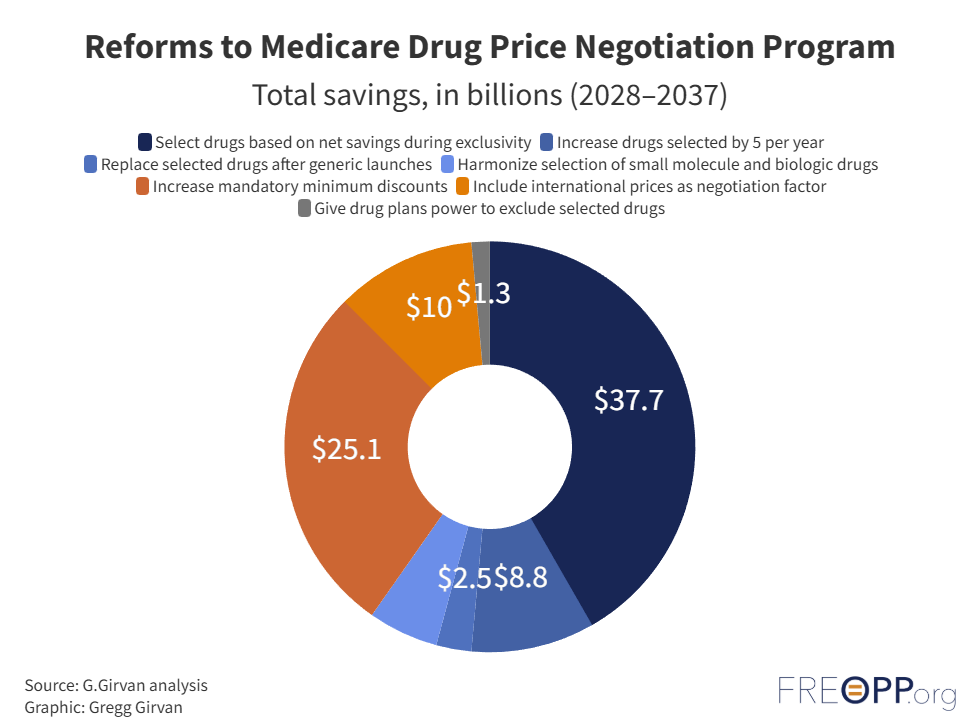Do 30-year mortgages support the American Dream–or undermine it?
Plus: New York changes course on nuclear power; improving Medicare price negotiation; and the need for a coherent federal approach to K-12 education
Rethinking the 30-year mortgage: Homeownership is widely seen as the gateway to the American Dream, but buying or building a home outright is out of reach for all but the wealthiest Americans. The federally backed 30-year mortgage was supposed to be a solution. Unfortunately, in practice, the system ties people to decades of debt and depends on perpetual housing inflation to build wealth. The result? A distorted housing market, sky-high prices, inefficient sprawl, and deepening wealth and racial disparities. In a new paper for FREOPP, Research Fellow Roger Valdez argues for a shift toward cooperative, fractional, and locally financed models that reduce risk, build equity faster, and return control to communities. Policymakers should redirect federal resources like the Housing Trust Fund to pilot these alternatives, creating a more accessible and sustainable path to homeownership.
New York corrects its mistakes on nuclear energy: New York’s decision to shut down the Indian Point Nuclear Power Plant in April 2021 profoundly reshaped the state’s energy landscape—with costly consequences. As Visiting Fellow Grant Dever wrote in a paper for FREOPP last year, data from 2017 to 2023 reveal that closing Indian Point led to an 84% spike in median electricity prices, a $500 increase in average household energy bills, and a sharp rise in carbon emissions and reliance on natural gas. Grid reliability also suffered, leaving the state more vulnerable to extreme weather. This summer, New York Gov. Kathy Hochul said that the state’s Power Authority will oversee development of a new nuclear plant. As The Wall Street Journal notes in an editorial citing Grant’s work, the episode serves as a cautionary tale about letting ideology trump evidence—and a potential turning point if New York follows through by preserving existing plants, fast-tracking approvals, and removing infrastructure barriers.
Improving the Medicare drug price negotiation program: The Inflation Reduction Act’s Medicare Drug Price Negotiation Program is projected to deliver billions in savings, but a new analysis from FREOPP Resident Fellow Gregg Girvan identifies design flaws that limit opportunities to do even more for poor Americans. Changes like prioritizing drugs with longer exclusivity, increasing the number of drugs negotiated, and raising minimum discounts could boost savings by $90.4 billion through 2037 without significantly harming innovation. Gregg urges Congress to strengthen the program by aligning drug selection with net savings potential, incorporating international price benchmarks, and removing requirements that reduce insurer leverage. With Medicare drug spending still rising, now is the time to refine the program to better serve beneficiaries and ensure long-term fiscal sustainability.
→ Gregg also took to National Review this month to make the case that the One Big Beautiful Bill Act puts the interests of patients ahead of the power of health care special interests for the first time in decades. He cites FREOPP’s World Index of Healthcare Innovation and notes that the bill creates an opportunity for ambitious reforms like the Fair Care Act.
The White House needs to propose a vision for federal K-12 reform: The White House’s decision to withhold nearly $7 billion in congressionally authorized K-12 education funding—including for teacher training, English learners, and after-school programs—has sparked controversy just weeks before the school year begins. While there’s legitimate debate about the effectiveness of these federal programs, the move risks disrupting school budgets and services for disadvantaged students without advancing meaningful reform. FREOPP Senior Fellow Dan Lips argues that the administration should instead work with Congress to transform federal education funding into direct student benefits, such as expanding education savings accounts and converting Title I into portable aid. A clear legislative vision, not unilateral funding freezes, is the better path to sustainable, parent-centered reform.
ICYMI: FREOPP scholars on the “One Big Beautiful Bill” Act: Earlier this month, FREOPP President Akash Chougule highlighted the work of FREOPP scholars related to the “One Big Beautiful Bill” Act on issues from education to health care to tax policy to energy—and what they mean for Americans at or below the median of wealth and income. Akash also notes that while the Act delivers a sweeping set of reforms, including extending tax cuts, reforming Medicaid, scaling back energy subsidies, and expanding school choice, its mixed economic impacts underscore the need for continued policy engagement.
Thanks for keeping up with FREOPP, and have a great weekend!
FREOPP’s work is made possible by people like you, who share our belief that equal opportunity is central to the American Dream. Please join them by making a donation today.




